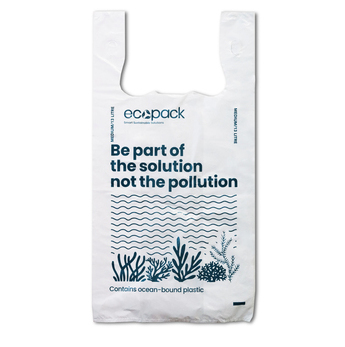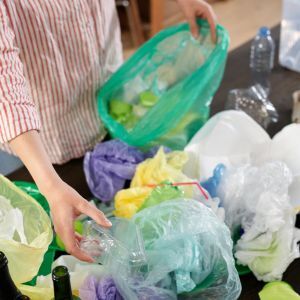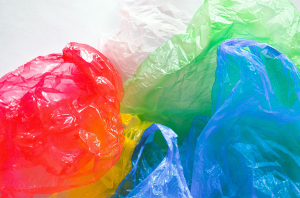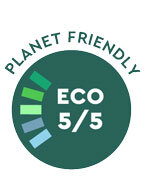What Are Bin Bags Made Of? A Look at Materials and Sustainability
Bin bags are a daily convenience, but the materials they're made from have a major impact on the environment. This article explores the common materials used to manufacture bin bags, compares their environmental footprint, and guides you in choosing more eco-friendly options available in New Zealand.
Common Materials Used in Bin Bags
LDPE, HDPE, and Recycled Plastics
The majority of conventional bin bags are made from Low-Density Polyethylene (LDPE) or High-Density Polyethylene (HDPE). LDPE is softer and more flexible, while HDPE is stronger and crisper. Many bin bags in New Zealand also incorporate recycled plastics, helping reduce demand for virgin material. However, not all recycled bags are created equal—quality can vary depending on source material and processing.
Bioplastics and Compostable Alternatives
Eco-conscious consumers are increasingly turning to bioplastics, which are derived from renewable resources like corn starch. These may be labelled as compostable, though it’s important to check for third-party certifications that confirm they meet NZ standards for composting. Compostable bags break down in industrial composting facilities under the right conditions.
How Manufacturing Affects Sustainability
Virgin vs Recycled Content
Manufacturing bin bags from virgin plastic consumes more energy and fossil fuels. Using post-consumer recycled content reduces greenhouse gas emissions and diverts plastic waste from landfill. Insinc now offer products with high recycled content. Additionally, compostable bags are made from renewable plant-based materials rather than oil-based plastics, making them a more sustainable option. There's also growing availability of plastic bags made from ocean-bound plastic, which helps intercept plastic waste before it reaches marine environments.
Carbon Footprint and Breakdown Rates
The production of plastic bags emits greenhouse gases. Compostable and biodegradable options may offer a lower carbon footprint, but only if disposed of correctly. Conventional plastic bags can take hundreds of years to break down, whereas compostable options can decompose in a matter of weeks—when processed in suitable composting systems. Furthermore, the manufacturing process for both plastic and compostable bags involves heating, extrusion, and forming into rolls, with compostable materials typically requiring less energy due to their plant-based nature.
Compostable bags are typically made from renewable plant-based materials such as corn starch, cassava, or other bio-based polymers. These raw materials are processed into biopolymer resins, which are then heated and extruded into thin plastic-like sheets. The sheets are subsequently cut and sealed to create the finished bags. This process is more environmentally friendly compared to conventional plastic production as it uses fewer fossil fuels and results in a product that can break down into natural components under the right composting conditions.
Choosing Eco-Friendly Bin Bags in NZ
Certifications to Look For
When selecting bin bags with sustainability in mind, look for certifications like:
-
AS 4736 or EN 13432 for compostable plastics
-
Home Compostable logos
-
Recycled Content declarations (e.g. 30%, 70%) These ensure you’re getting genuine eco alternatives rather than greenwashed products.
Best Practices for Use and Disposal
-
Choose the right size to minimise material waste
-
Use thinner bags for dry, lightweight waste
-
Compostable bags should go in organic or compost waste streams only
-
Avoid mixing compostable and recyclable waste, as it can contaminate recycling
Frequently Asked Questions
Are bin bags biodegradable?
Some are, but not all. Check the label—many standard plastic bin bags are not biodegradable. Compostable bags with proper certification offer a reliable biodegradable option.
What’s the difference between compostable and degradable bags?
Compostable bags break down fully in a compost environment without leaving behind harmful toxins. Degradable bags, which have been banned in New Zealand, may fragment into smaller pieces but do not fully biodegrade—leaving behind microplastics that harm the environment.
Are bin bags made from recycled plastic safe?
Yes. Recycled plastic bags are safe for general waste collection and reduce the demand for new plastic. However, they shouldn’t be used for food-contact or compost waste unless specified.
Helpful Resource
Further Reading: Distinguishing Between Degradable, Biodegradable & Compostable Plastic
To deepen your understanding of eco-friendly waste solutions, read our article on the key differences between degradable, biodegradable, and compostable plastics. This guide will help you make more informed choices when selecting bin bags and other products for sustainability.
Conclusion
Understanding what your bin bags are made of is the first step to making environmentally conscious choices. Whether you opt for recycled plastic, bioplastics, or compostable materials, selecting the right type and disposing of them properly can significantly reduce your environmental impact.
Posted: Tuesday 8 July 2025




